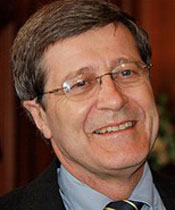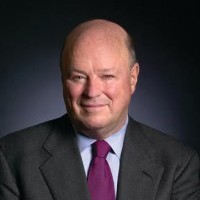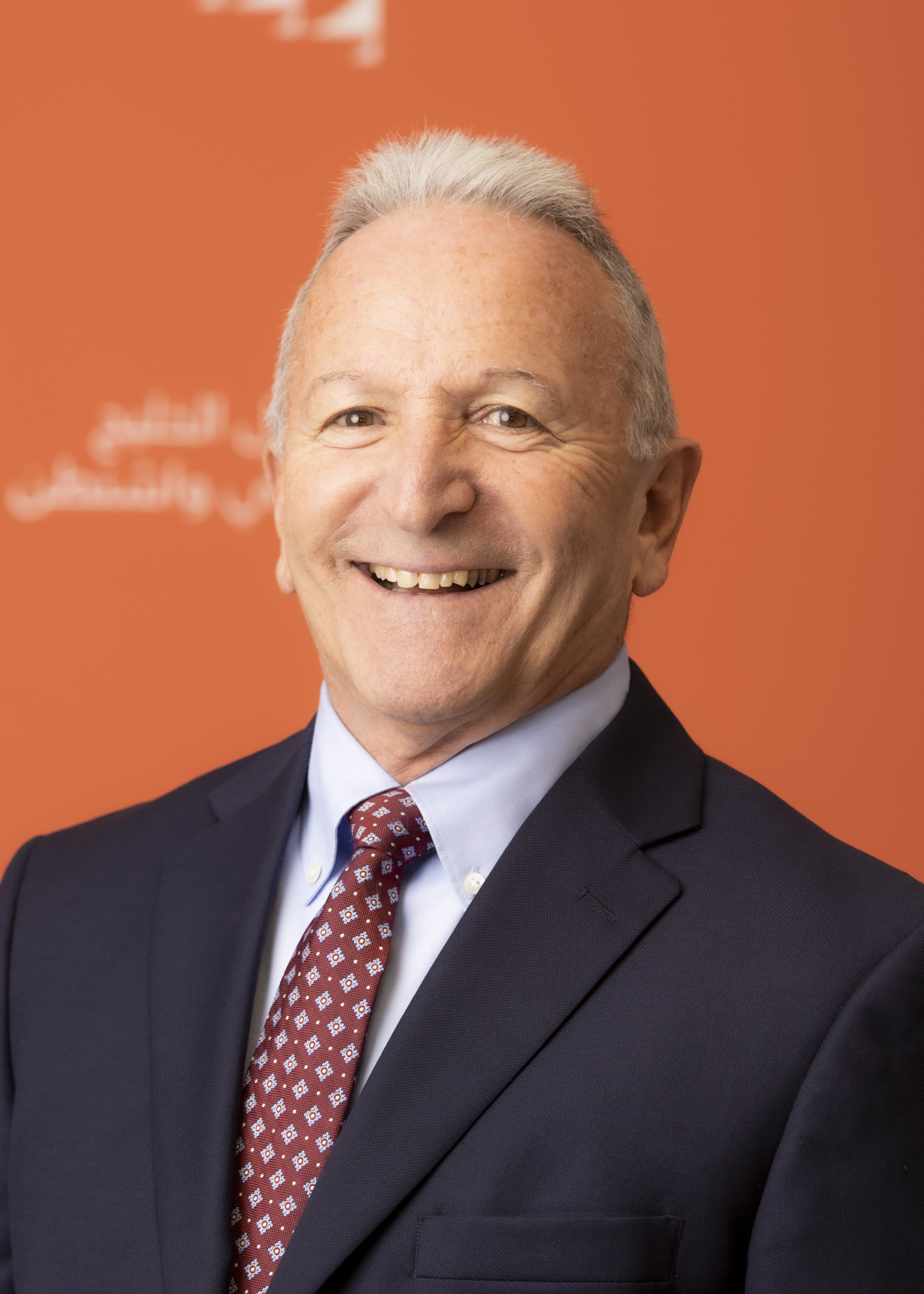Past Event
Petro Diplomacy: The Political Economy of Volatile Oil Prices
Date
Apr 27, 2015
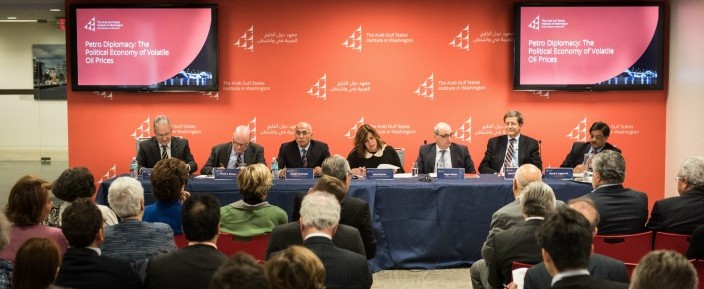
About the event
This event focused on the recent dramatic fall in the price of oil, the motivations behind OPEC’s decision to maintain production levels, and the implications of low oil prices for shale producers, offshore drilling, and alternative energy development. The discussion further examined the effect of continued volatility in oil prices on Gulf States and other Middle East countries, and the impact of the decrease in U.S. dependence on oil imports on U.S. foreign policy and relationships with Middle East oil producers.
The conference began with two closed sessions, which brought together several distinguished panelists and discussants.
The views represented herein are the author's or speaker's own and do not necessarily reflect the views of AGSI, its staff, or its board of directors.
Agenda
Session 1: Volatile Oil Prices: Origins, Impact, and Prospects for Energy Producers and Consumers

Aldo Flores-Quiroga, Secretary General, International Energy Forum
Kamel al-Harami, Independent oil analyst
Bill Thomas, Chairman and CEO, EOG Resources
Session 2: The Foreign Policy Implications of Volatile Oil Prices
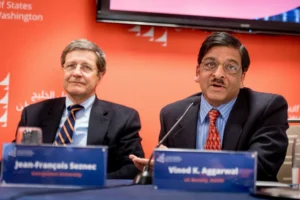
George T. Abed, Senior Counselor and Director for Africa & the Middle East, Institute of International Finance
Jeff Colgan, Richard Holbrooke Assistant Professor of Political Science and International Studies, Brown University
Public Forum
Following the closed sessions was the Public Forum, which included a number of panelists from the closed sessions and was attended by representatives from the international media, U.S. government, and foreign embassies.
Kamel al-Harami, Independent oil analyst
Keynote Address
A highlight of the conference was a keynote address by Ambassador Frank G. Wisner:
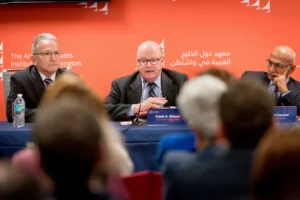
It is a pleasure to welcome you to the first major event hosted by the Arab Gulf States Institute in Washington. We are here to discuss today’s oil markets, one of the many issues that demonstrate why the Middle East remains a region of fundamental importance to the United States.
Despite the much ballyhooed “pivot” to Asia, the United States’ commitment to the Middle East remains strong. Indeed it is essential that our nation remains engaged in the area’s key political, economic and security issues and that such engagement remains unabated.
As the Middle East continues to be reshaped by the region’s seismic changes, underway since 2010, the importance of America’s relations with our Arab Gulf friends has become clearer than ever.
Session 1: Volatile Oil Prices: Origins, Impact, and Prospects for Energy Producers and Consumers

Aldo Flores-Quiroga, Secretary General, International Energy Forum
Kamel al-Harami, Independent oil analyst
Bill Thomas, Chairman and CEO, EOG Resources
Session 2: The Foreign Policy Implications of Volatile Oil Prices

George T. Abed, Senior Counselor and Director for Africa & the Middle East, Institute of International Finance
Jeff Colgan, Richard Holbrooke Assistant Professor of Political Science and International Studies, Brown University
Public Forum
Following the closed sessions was the Public Forum, which included a number of panelists from the closed sessions and was attended by representatives from the international media, U.S. government, and foreign embassies.
Kamel al-Harami, Independent oil analyst
Keynote Address
A highlight of the conference was a keynote address by Ambassador Frank G. Wisner:

It is a pleasure to welcome you to the first major event hosted by the Arab Gulf States Institute in Washington. We are here to discuss today’s oil markets, one of the many issues that demonstrate why the Middle East remains a region of fundamental importance to the United States.
Despite the much ballyhooed “pivot” to Asia, the United States’ commitment to the Middle East remains strong. Indeed it is essential that our nation remains engaged in the area’s key political, economic and security issues and that such engagement remains unabated.
As the Middle East continues to be reshaped by the region’s seismic changes, underway since 2010, the importance of America’s relations with our Arab Gulf friends has become clearer than ever.



